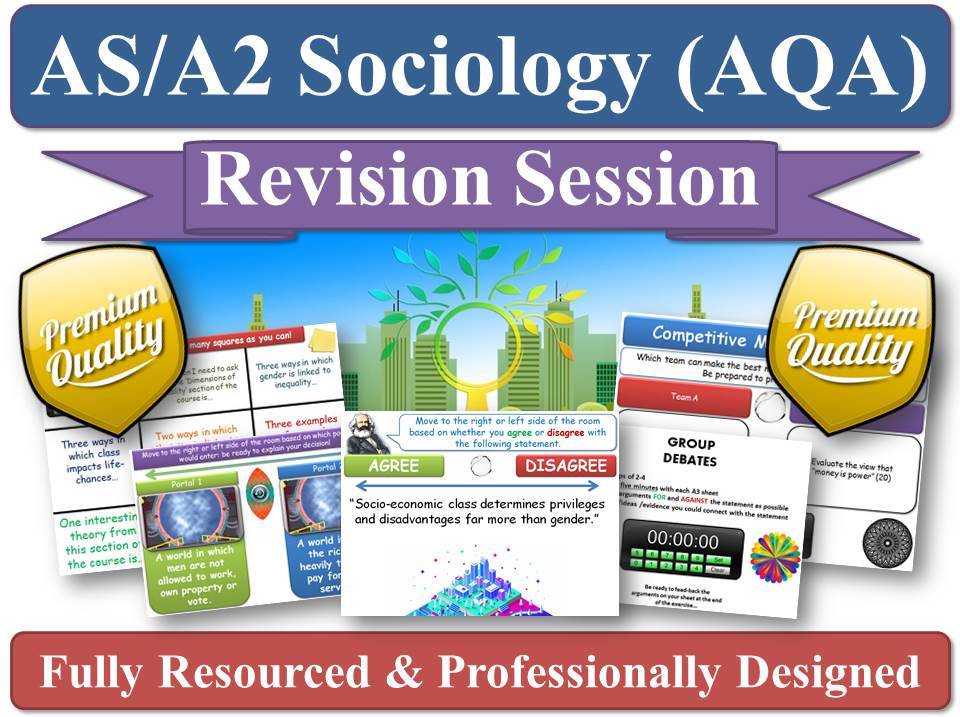Religion, Philosophy, Sociology & Ethics Resource Base
Resources for Religious Studies, Sociology, Philosophy, Ethics and Humanities. We specialise in making whole units and courses for ultimate convenience and time-saving. We always aim to make the best resource for a given topic: our goal is perfection and our resources have helped educate 1 million+ students!


![Values - Thinking Deeply About Our Values [P4C - Philosophy & Ethics Lesson]](https://d1e4pidl3fu268.cloudfront.net/fe04247e-f297-4347-9266-5a2772728b5a/PhilosophyLessonPhilosophyTeachingResourcesP4CValuesCoreValuesOurValuesLesson.crop_659x494_49,0.preview.jpg)
![The Sociology Debate Generator! (200 DEBATES for GCSE/AS/A2) [Revision, Discussions] AQA/OCR (P4C)](https://d1e4pidl3fu268.cloudfront.net/fb994646-17f6-4321-a595-ace6ee46e26b/Cover.jpg)

![[Data on Crime, Dark Figure of Crime] >ICT Suite Lesson< (or home work task) AQA Sociology GCSE 2017](https://d1e4pidl3fu268.cloudfront.net/2eb163f0-ce14-4f8c-bcac-5a8e7c317fc6/CoverNew.crop_960x717_0,0.preview.jpg)
![Multiculturalism & Celebrating Other Cultures [Philosophy Boxes] (P4C) KS1-3 Philosophy - Debates](https://d1e4pidl3fu268.cloudfront.net/eece21a7-8e16-4eb2-a879-873fa6561089/NewCover2018SinglePhilosophyForChildrenP4CLessonLessonsResourcesSessionsPhilosophyBoxes.crop_960x717_0,0.preview.jpg)
![Philosophy Boxes [Tutor / Form Time Bundle] [Citizenship, PSHE, Critical Thinking, Philosophy, Ethics, SMSC, Cross-Curricular. KS1, KS2, KS3.]](https://d1e4pidl3fu268.cloudfront.net/e1c1d8cd-c86a-4bc7-9ac5-c27277d748ce/PhilosophyforChildrenP4C.crop_957x720_0,0.preview.jpg)
![12 Mark Question Feedback Sheet - AQA GCSE Sociology [ 8192 ] - PEER SELF MAF Assessment DIRT Target](https://d1e4pidl3fu268.cloudfront.net/daf5ed73-1894-469d-aa9b-155a6f686d73/12MARKFEEDBACKSHEETGCSESOCIOLGOY.crop_960x717_0,0.preview.jpg)
![Introduction & Central Debates - The Sociology of Education - [AQA GCSE Sociology - 8192] KS4 L1/20](https://d1e4pidl3fu268.cloudfront.net/04665a7a-62e3-4102-8653-027b66299f5c/Cover.crop_700x523_0%2C0.preview.jpg)

![Feminist Perspectives - Crime & Deviance L16/20 [ WJEC EDUQAS GCSE Sociology] Feminism Gender](https://d1e4pidl3fu268.cloudfront.net/e9a5ca5c-7009-44fd-9acf-3c16e2e2a6e1/Cover.jpg)




![Video Learning Session - Social Stratification, Power & Authority [ AQA GCSE Sociology - 8192] L20](https://d1e4pidl3fu268.cloudfront.net/f3cd5faa-51b2-450d-9e3e-efb887038454/VideoCoverSocialStratifi.crop_700x523_0%2C0.preview.jpg)



![Conjugal Role Relationships - Sociology of Family - L6/20 [ AQA GCSE Sociology - 8192] Families](https://d1e4pidl3fu268.cloudfront.net/d6d58f3d-8aac-432d-a8f1-262b8c0693c5/Cover.jpg)